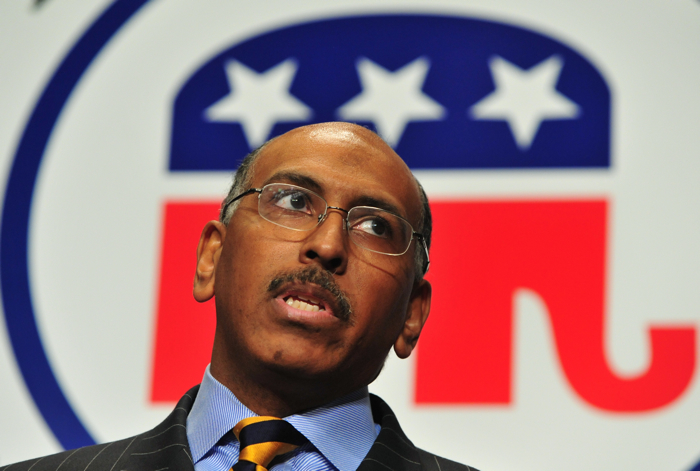Four of the many candidates seeking to replace Michael Steele at the head of the Republican National Committee took a break from the behind-the-scenes wheeling and dealing of an RNC chair race yesterday to make their case to the tea party. Whether the tea party paid attention is still anyone’s guess.
Former Michigan GOP chair Saul Anuzis, former Ambassador and Missouri GOP chair Ann Wagner, former RNC chair Mike Duncan and recently departed RNC political director Gentry Collins gathered for a debate of sorts before an audience of tea partiers hosted by FreedomWorks in Washington. Of the four who appeared, only Anuzis and Wagner are official candidates, though Collins is expected to jump into the race officially at any moment. Duncan’s appearance was something of a surprise, though he clearly came prepared to mount a run at the job he lost to Steele in 2009.
The movement that has come to define the Republican Party this year was invited by members of the GOP establishment to play a part in electing the chair. Establishment types hope that by bringing the tea party to the table, they can unite a party still fractured somewhat after nasty primaries. The debate featured a number of questions about how to go about doing that — but few answers.
Where the tea partiers in the room and online (the debate was netcast by FreedomWorks) wanted the candidates to engage in the kind of Republican establishment self-flagellation that’s marked much of the relationship between the GOP and its angry base in the recent past, the candidates seemed more eager to discuss how much wealthy Americans like giving them money.
Much of the talk at the debate centered around the RNC’s failure recently to engage with “major donors,” the folks who can pony up tens of thousands of dollars every year and often do. Despite the fact they were talking to an audience of grassroots activists whose tea party groups are generally not known for their fundraising prowess, the candidates offered story after story about how exactly they’ll make the uber-wealthy comfortable enough with the RNC to open their wallets like they used to. That may have played well with the 20 or so voting members of the RNC in the crowd, but it didn’t seem to thrill the tea partiers in attendance.
“I have yet to hear the Republican candidates here acknowledge the fact that they didn’t do November 2nd — the tea party made that happen,” one tea party questioner from West Virginia in the audience yesterday told the candidates. “I want to know how you plan to integrate the tea party movement into the RNC.”
Anuzis, who’s running for chair for the second time this year, said that legal limits on how the RNC can raise and spend money could make it hard to “integrate” the tea party groups into the tea party machinery. But he added that the future of the GOP would come by it remaining part of the “movement in America” among “conservative center-right people who came together for the good of the cause.”
“It’s a bigger ‘we’,” Anuzis said. “There’s no Republican that won, there’s no tea party individual that won…this was done because all of us joined together for the good of the cause.”
Wagner said what’s best about the tea party is its independence. She promised to “listen” to the grassroots and make them a part of her tenure at the helm of the RNC.
Collins, who is running as a “political professional,” as opposed to a politician (perhaps a veiled dig at Steele), went farthest in offering RNC resources to support the tea party cause. He suggested the RNC become “the forefront of repealing Obamacare with state-based referenda.”
As the rest of the candidates did, Collins also promised to “stay out of primaries.”
Duncan said not only does he understand that the GOP has to “welcome” the grassroots into the party, he actually “lived that life” back in his home state of Kentucky.
“As soon as Rand Paul won the nomination in Kentucky, I talked to him,” Duncan said, referring to Kentucky’s Republican Senator-elect. “I raised money for him, I made speeches for him, I voted for him, I did everything that I could.”
Other than introducing these four candidates to a wider audience, it’s unclear exactly what impact the debate will have on the RNC race. So far, no clear frontrunner has emerged in the multi-candidate field and with Steele yet to declare his intentions the full dynamics of the race are still unknown. But the debate did show that even after winning big on Nov. 2, the tea party is still somewhat wary of the mainstream GOP.
“My biggest fear is this is going to be a dog and pony show,” JoAnn Abbott, a tea partier from Woodbridge, VA told me after the debate. She said that despite the outreach to the FreedomWorks crowd, she wouldn’t be surprised if the RNC chair “was chosen in the backroom.”









